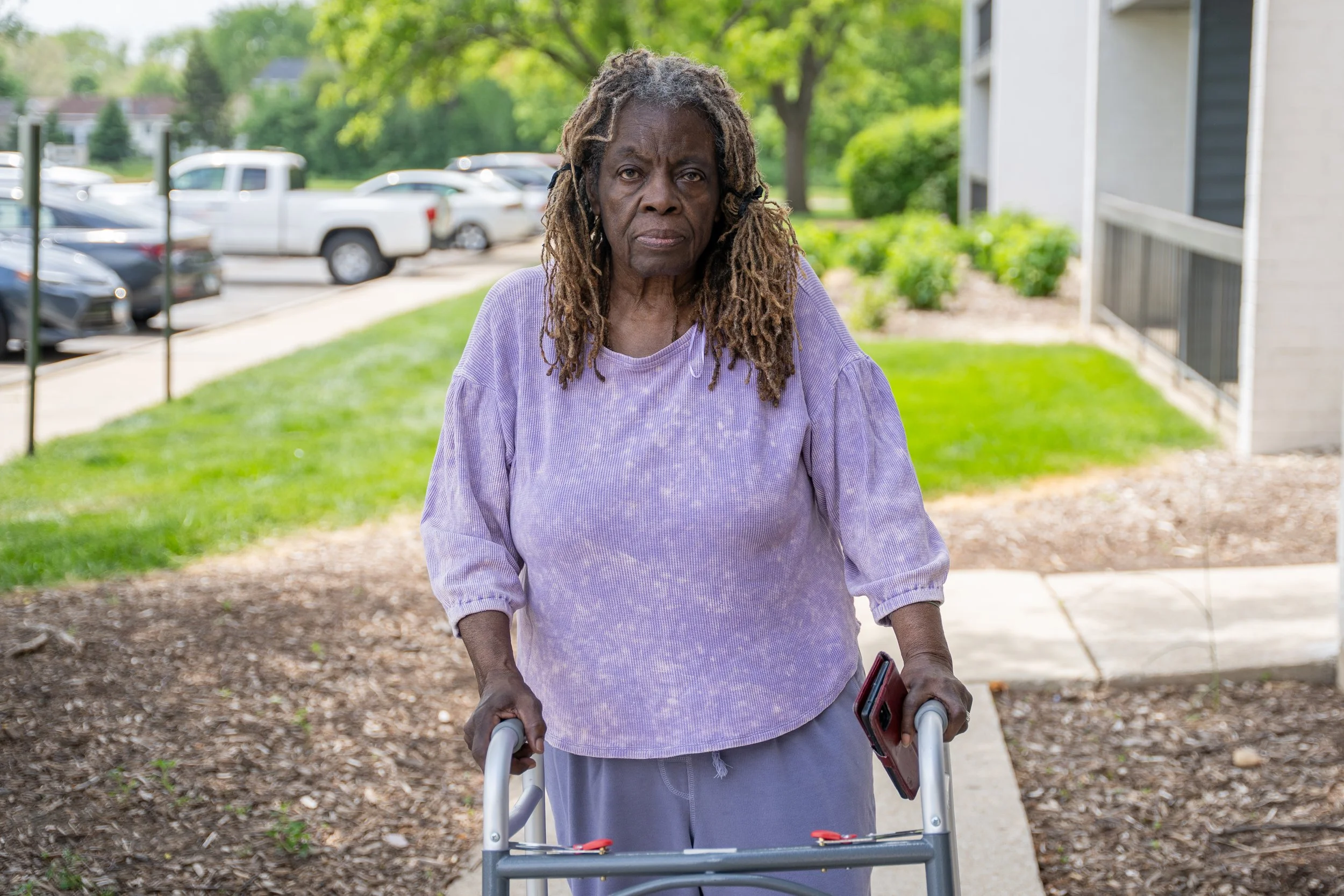Property-tax foreclosure reform gets put off by Illinois legislators
Lawmakers said they again will consider the issue later this year. Meanwhile, Cook County will postpone its 2025 tax sale because of concerns over homeowners who fall behind on property taxes losing their homes and equity.
By Emeline Posner and Carlos Ballesteros for Injustice Watch
Velma Lewis who is from Maywood, is one of hundreds of Black homeowners in Cook County that lose homes and/or equity each year to white investors in tax foreclosure under segregation-era law. | Brian Ernst/Sun-Times
This is a joint project of Injustice Watch and the Investigative Project on Race and Equity.
In their end-of-session dash to pass a state budget, Illinois lawmakers put off consideration of proposed reforms to property tax sales and foreclosures.
That leaves Illinois the only remaining state where homeowners can face losing not just their homes but also all of the equity in them they’ve accumulated if their homes are foreclosed on for falling far behind on paying their property taxes.
Experts say it also means Illinois is out of step with a 2-year-old Supreme Court ruling that mandated that local governments give homeowners any money that’s left over after their homes are sold to pay off their tax debt and related fees and penalties.
More than 1,000 owner-occupied homes in Cook County have been taken in tax foreclosures since 2019, mostly in majority-Black communities, an investigation by Injustice Watch and the Investigative Project on Race and Equity published in May by the Chicago Sun-Times found.
Those homes had a fair-market value totaling $108 million, according to county assessments. The homeowners lost them over tax debts that collectively amounted to just a fraction of that — $2.3 million.
All of that equity went into the pockets of private investors, known as tax buyers, who paid the delinquent taxes at a government auction, then took ownership of the properties when homeowners didn’t repay them in time. The taxes owed often were several times less than what investors made selling the homes.
And hundreds more homeowners in Cook County are in the final stages of tax foreclosure and could end up losing all of their equity under the current system, court records show.
Legal experts and homeowner advocates say the system hits Black homeowners especially hard.
For decades, efforts to win reforms in Springfield have failed. Supporters have hoped they’d have better luck this year thanks largely to the Supreme Court’s ruling and several lawsuits filed in its wake by former homeowners seeking their lost equity.
The proposals this year — pushed by lawmakers including state Sen. Celina Villanueva, D-Chicago, and state Rep. Will Guzzardi, D-Chicago — would have put homes in tax foreclosure up for sale at a public auction instead of immediately transferring ownership to tax buyers. And then any proceeds exceeding the taxes owed would go back to homeowners.
“I’m frustrated that we weren’t able to resolve this problem this legislative session, but we made a lot of headway,” Guzzardi said.
This project was produced with the support of the Fund for Investigative Journalism.

